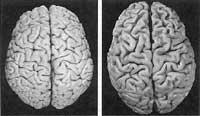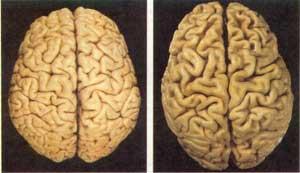Early's Early Detection Test
2002/03/22 Andonegi Beristain, Garazi - Elhuyar Zientziaren Komunikazioa
Mouse experiments have shown that this test is able to accurately detect the amyloidosis in the brain. This protein is closely related to the development of Alzheimer's, as it generates plaques and kills brain cells. However, when symptoms of Alzheimer's occur, plaques may not have been detected for years. Other tests have measured the amount of amyloidosis in the blood as a reflection of what is in the brain, but have not obtained good results.
Reliable test

The American team studied mice with a special mutation. These mice, due to the mutation, developed amyloidosis plates to their extent. Instead of directly measuring blood amyloidosis levels, mice were first injected with a compound called m266. It seems that this compound is able to detect the amount of cerebral and environmental amyloidosis. After a few minutes, the amount of amyloidosis in blood was a precise indicator of the plaques in the brain of mice.
According to researcher David Holtzman, the results obtained will allow to develop a similar test for man. Although the test is not possible to detect the patient who still does not have plaque, it allows to detect the disease before symptoms. In addition, the test will help differentiate dementias caused by Alzheimer's from others, designing more precise treatments.
Future plans
Simon Lovestone, doctor of the Institute of Psychiatry at King’s College in London, says that although Alzheimer’s treatment is not available, early diagnosis is important for patients. "One of the most important things is that the diagnosis is made in time for things to be organized and prepared for the future."

Gai honi buruzko eduki gehiago
Elhuyarrek garatutako teknologia





